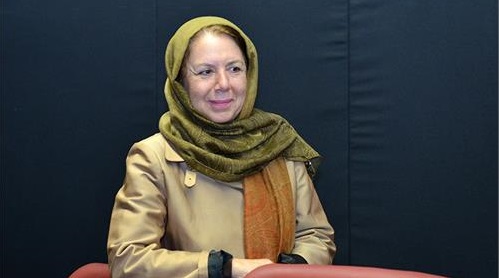President of the Instrument in Support of Trade Exchange (INSTEX) recently conferred with economic and business authorities in Tehran on ways to remove barriers to launching the long-awaited European trade mechanism.
According to the news published by Tehran Chamber of Commerce Industries Mines and Agriculture, In a talk with IBENA news agency, Ferial Mostofi, head of Investment Commission at Iran Chamber of Commerce, Industries, Mines and Agriculture shared details of her meetings with the German official and INSTEX boss, Per Fischer. Their talks focused on the need for a banking channel to handle humanitarian transactions with Iran and the export of Iranian oil to the 27-nation bloc for the purpose of paying Iran’s import bills to the European Union.
Referring to statements by US officials on several occasions saying explicitly that sanctions do not cover pharmaceuticals, food, and other humanitarian goods, she said in the talks she communicated to Fischer the need for a strong banking channel for humanitarian trade with Iran.
Averse to Risks
“While the US says food and pharmaceuticals are not on the list of sanctions, in practice international banks don’t risk transferring money to and from Iran,” she said, attributing their fears to the fact that some banks have been punished in the past for disregarding the hostile US restrictions and conducting trade with Tehran.
“International banks don’t enter into any contract that bears Iran’s name until the US Treasury issues a permit for such [humanitarian] cooperation.” In a press conference with British Foreign Secretary Jeremy Hunt in May, the US secretary of state, Mike Pompeo, said there are provisions enshrined in the sanction regime that allow humanitarian aid and certain products to be exported to Iran.
“We have talked with the UK, Germany, and France about INSTEX. We have said so long as that is the vehicle – that is a vehicle being used for that limited purpose, that non-sanctioned purpose, it’s, of course, unobjectionable,” he said. Mostofi urged the Tehran government and European states to increase pressure on the US not to sanction banks for handling humanitarian trade with Iran.
France, Germany and the United Kingdom, three EU countries party to the 2015 nuclear deal, said in February that the creation of a financial mechanism for non-dollar trade with Iran is nearing completion.INSTEX is aimed at facilitating trade with Iran by circumventing sanctions re-imposed by the United States after President Donald Trump pulled out of the 2015 nuclear deal last year and said he wants a new agreement on American terms.
Oil Issue
Regarding another demand by Fischer, she pointed to the possibility of using oil import bills from Iran to pay for goods imported by Iran.“In talks with Fischer, we stressed that one of the European countries should receive a waiver to import oil worth about $4 billion to be used for settling payments,” Mostofi said.
The INSTEX chief accompanied German Foreign Minister Heiko Mass to Tehran last week for talks on the unqualified US exit from the Iran nuclear agreement, the new economic sanctions imposed by Trump’s America and the EU procrastination with regard to operationalizing INSTEX.
************************
Why Should Be “A Paid-Subscriber” and “Advertiser”
Keeping an independent media in countries that impose limitations on self supporting media, will help to support the humankind’s freedom. If you believe it, please act to be a PRO-MEMBER by clicking “HERE“, or:
Please send your PR’s directly to the email address of the Chief-Editor in order to be published at once in the world via ” http://pimi.ir ” The address is: aasaatnia@live.com.














